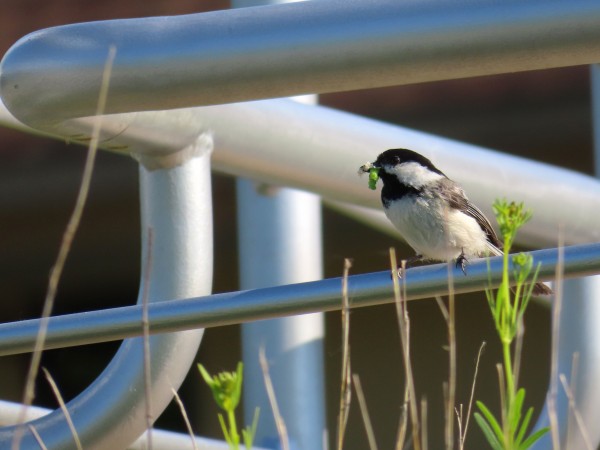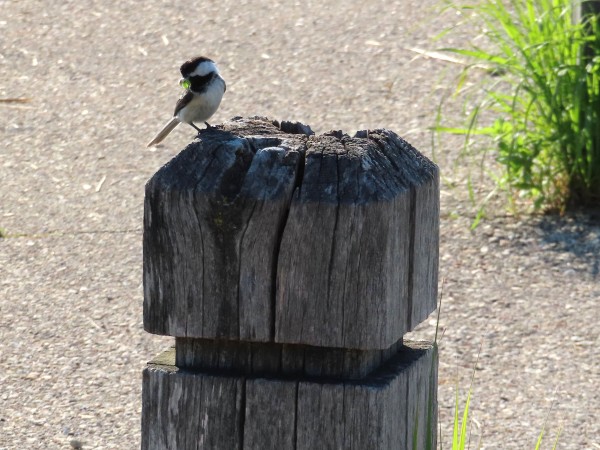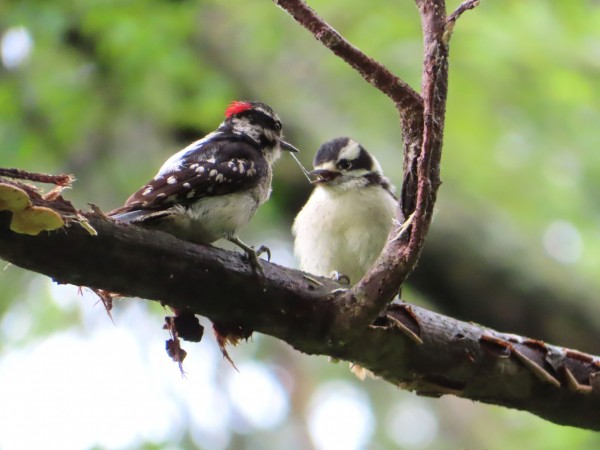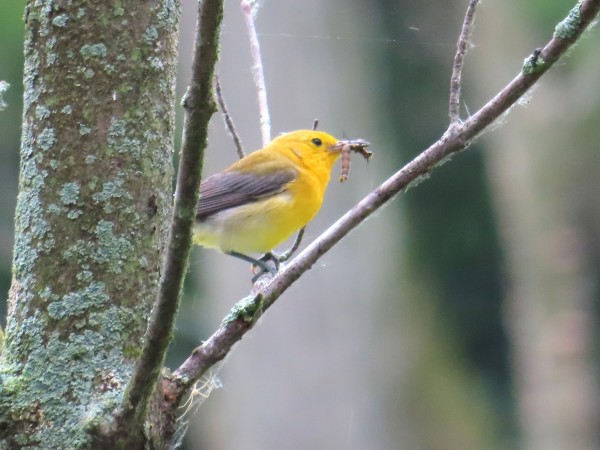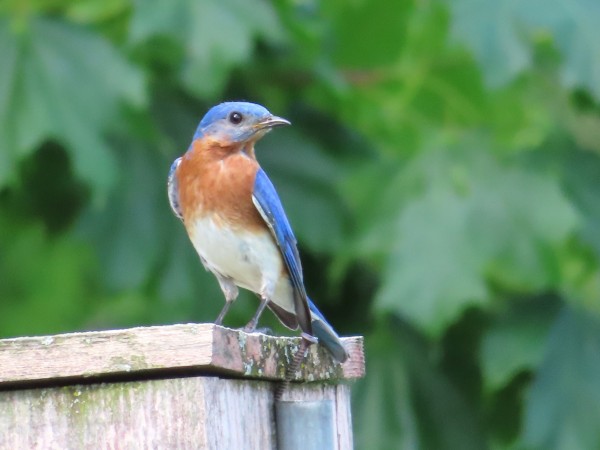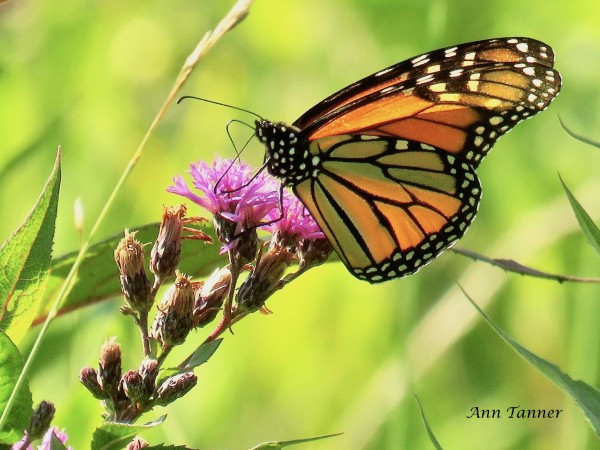Chuck's Weekly Birding Report #14
16 June - 22 June 2020
Dear fellow flock of birders,
I wish I could tell you that our bird walks could start again soon but I can't. The pandemic is still with us and we still need to be careful and cautious. I hope you are all well and remaining positive. Together we can and will get through this.
The birds in the Arb go about their lives as if nothing has changed. What I've been seeing this past week has not changed that much from last week. I've been seeing lots of adults carrying food which I assume is going either to feed the young in nests, the nestlings, or to feed those who have just left the nests, the fledglings. I have also seen young birds fluttering their wings or making baby cry vocalizations all of which mean "feed me, feed me".
The photos attached today show a couple examples of the above.
First I saw one of my favorite birds, a Black-capped Chickadee, perched on a silvery railing. In its beak was a juicy green inch worm or some such thing. With the worm in its beak it was scolding me, for what reason I know not. I took a photo of the BCCH and then backed away. It turns out the chickadee had a nest inside one of the short 10 X 10 inch square posts. The chickadee flew from the railing and went right into a hole in the top center of the post. I never would have guessed that any bird would nest there. Moments later the chickadee emerged from the post without the worm, nestling fed.
Today I was walking when I heard a peep, peep, peep. Looking around I found a male Downy Woodpecker feeding a fat fledgling. Have you noticed the fledglings often appear fatter than the adult feeding it? The fledgling perched motionless on the branch while "daddy" pecked at various crevices in the bark nearby collecting food. I took some photos of the fledgling but really what I wanted was the moment when the adult would feed the fledgling. I almost got my wish but my shot was one second after the feeding. If you look closely at the attached photo there is a thread of saliva connecting the adult with the fledgling which I believe is proof that the feeding occurred.
One of my favorite warblers is the Prothonotary Warbler. It has this brilliant yellow, sometimes almost orange-yellow head and chest with gray wings and white belly. It is really a showy bird! I watched an adult male bringing food to the nest tubes which I assume was to feed nestlings inside. I watched for an hour on two different days. The adult was constantly hunting for insects and the like and flying them to the nest tube. Fascinating to watch! Attached are a photo of an adult with an insect or larva in its beak and a photo of the adult leaving the nest with a fecal sac. The nestlings of certain species package their poop/urine in a membrane so the parent can carry it away and keep the nest clean. How clever is that?!
My last photo is one of a male Eastern Bluebird standing on a nest box. That is truly a beautiful bird. The first nestings of bluebirds from the Arb nest boxes have fledged and now some adults are starting on a second brood.
Take a walk in the Arb this coming week and see what birds you can find by sight or by ear. Don't overlook the new blooming wildflowers and butterflies.
All the best,
Chuck
Note: June 22-28 is Pollinator Week. Pollinator Week raises awareness on the importance of pollinators, the threats they face and steps we can all take to help them. Throughout this week and until August, Journey North will celebrate pollinators, specifically monarchs and hummingbirds.
Read Pivotal Pollinators: Small in Size, Large in Impact to find out more about the importance of pollinators and why Journey North will celebrate Pollinator Week not just June 22-28 but all summer long.

